Introduction
"Salary Sacrifice" sounds like a daunting phrase, but it's actually a straightforward concept that's gaining traction in today's corporate world. Simply put, it's an arrangement where an employee agrees to reduce their pre-tax salary in exchange for a non-cash benefit from their employer, such as a new tech gadget, childcare vouchers, or increasingly, an electric vehicle (EV).
Why focus on EV uptake through salary sacrifice schemes? As businesses strive for greener credentials and governments push for lower carbon emissions, electric vehicles are becoming a key player. Salary sacrifice schemes offer an appealing route for employees to transition into driving EVs without the steep initial costs, while also helping businesses enhance their sustainability profile.
In this article, we'll navigate through the intricacies of salary sacrifice schemes, explore their benefits to both employees and employers and examine their impact on the adoption of electric vehicles. From understanding the basics of salary sacrifice to the practical steps of implementing a scheme, we aim to provide a comprehensive guide that sheds light on this win-win strategy.
There are three main areas in this article we are going to tackle:
- Understanding Salary Sacrifice
- Benefits of Salary Sacrifice for Employees
- Business Incentives for Supporting Salary Sacrifice
- Impact of Salary Sacrifice on EV Adoption
- Practical Steps to Implement Salary Sacrifice for EVs
Let's jump in below.
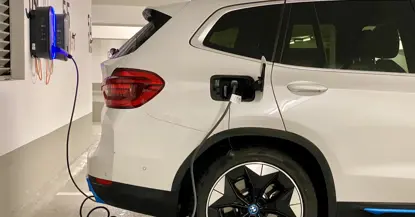
Understanding Salary Sacrifice
What is Salary Sacrifice?
Salary sacrifice is a straightforward yet potent financial arrangement between an employee and their employer. Essentially, an employee agrees to forego a portion of their gross salary in exchange for a non-cash benefit – in this case, an electric vehicle. This isn't about losing money; it's about structuring compensation wisely to reap greater benefits.
For many, the immediate allure of salary sacrifice lies in its capacity to stretch income further. By channelling pre-tax earnings towards specific benefits, such as EV leasing, employees can enjoy substantial savings compared to purchasing the same vehicle outright with post-tax income. Salary sacrifice schemes, therefore, transcend mere perks and evolve into robust fiscal tools that can significantly enhance an individual's financial planning.
How Salary Sacrifice Works
The mechanics of a salary sacrifice scheme are relatively simple but profoundly impactful. Employees agree to reduce their annual salary by an amount equivalent to the lease cost of an electric vehicle. This lease payment is then made pre-tax, effectively lowering the individual's taxable income. Consequently, employees not only make savings on income tax but also reduce National Insurance contributions – a dual financial advantage.
Consider Jane, who earns £50,000 a year. Without salary sacrifice, leasing an EV might cost her £500 from her post-tax income. By opting into a salary sacrifice scheme, Jane reduces her annual salary to £44,000. The £6,000 dedicated to the EV lease is taken out before tax calculation, lowering her taxable income and thus her tax burden. The overall savings make the financial framework of leasing an EV more palatable and economically intelligent.
Through salary sacrifice, businesses and employees can collaboratively navigate towards a more sustainable and economically favourable future. By allowing the savvy structuring of salaries, this scheme not only makes driving electric vehicles feasible but also decisively cost-effective.
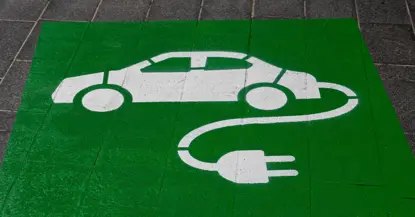
Benefits of Salary Sacrifice for Employees
When it comes to making the leap to electric vehicles (EVs), salary sacrifice schemes offer a plethora of benefits for employees. These advantages extend far beyond the allure of driving a sleek, modern car; they touch on financial, environmental, and personal welfare elements.
Financial Advantages
The standout benefit of a salary sacrifice scheme is the financial advantage it offers to employees. For one, such schemes can lead to significant tax savings. Here’s how it works: by agreeing to give up a portion of their pre-tax salary, employees can benefit by effectively lowering their taxable income. This results in reduced Income Tax and National Insurance contributions. For high earners, the savings can be quite substantial, making the cost of an EV much more palatable.
Moreover, the payments for the EV are spread over monthly instalments deducted directly from the salary, which makes the purchase financially manageable. Employees don't have to worry about a hefty initial outlay, and they can enjoy the benefits of a brand-new electric vehicle without the financial strain typically associated with car ownership.
Environmental Considerations
For the environmentally conscious, driving an EV via a salary sacrifice scheme ticks a huge box. Electric vehicles produce zero tailpipe emissions, which significantly reduces the individual’s carbon footprint. This is a clear win for employees who are committed to sustainable living. Moreover, as more employees adopt EVs, the collective environmental benefits compound, contributing to cleaner air and a healthier planet.
The opportunity to actively contribute to environmental sustainability can also inspire employees to adopt more eco-friendly habits in other areas of their lives. From recycling more diligently to cutting down on single-use plastics, the positive environmental impact of driving an EV can extend beyond the individual’s commute.
Enhanced Employee Benefits
In the competitive job market, attractive employee benefits can make a significant difference in retaining and attracting talent. Salary sacrifice schemes for EVs can be an appealing feature of an employer's benefits package. It’s a tangible perk that employees can see and use daily, making it immensely valuable.
Additionally, employees appreciate when their employers invest in their welfare. Offering a salary sacrifice scheme for EVs signals that the company cares about both their financial well-being and their work-life balance. A modern, reliable electric car can significantly enhance the ease and comfort of an employee’s commute, translating into a more positive attitude at the workplace.
In conclusion, salary sacrifice schemes offer a comprehensive set of advantages that make them highly appealing to employees. From easing financial burdens and supporting eco-friendly initiatives to enhancing the overall benefits package, these schemes present a compelling option for anyone considering the switch to electric vehicles.
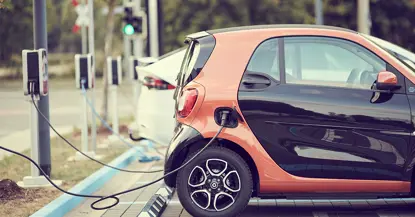
Business Incentives for Supporting Salary Sacrifice
Green Business Credentials
Firstly, integrating salary sacrifice schemes for electric vehicle (EV) uptake can significantly bolster a company's green credentials. Environmental responsibility is increasingly becoming a top priority for consumers, investors, and stakeholders. By promoting EVs, businesses can demonstrate their commitment to sustainability and reduce their carbon footprint. This proactive approach not only enhances a company’s Corporate Social Responsibility (CSR) profile but also positions it as a forward-thinking and environmentally conscious organisation. Such distinctions can cultivate goodwill and potentially leverage better relationships with partners and customers who prioritise environmental ethics.
Financial Savings
Next, businesses can also enjoy tangible financial benefits. Implementing a salary sacrifice scheme can result in notable tax advantages. Employers providing EVs through salary sacrifice can reduce their Class 1A National Insurance Contribution liabilities. Moreover, there's the potential to save on overall vehicle running costs, thanks to lower maintenance and fuel expenses associated with EVs. Transitioning your fleet to electric can significantly cut down fuel costs, as electricity is generally cheaper than conventional fuels. Additionally, EVs require less frequent servicing and have fewer moving parts, which can lead to lower maintenance costs over time.
Employee Retention and Attraction
Lastly, offering a salary sacrifice scheme can be a strategic move in the competitive employment market. Comprehensive benefits packages are a key factor in attracting and retaining top talent. Employees today seek more than just a paycheque—they look for employers who provide value-driven benefits that align with their personal ethics and financial goals. By including an EV salary sacrifice scheme, businesses can appeal to environmentally conscious employees and those looking to reduce daily commuting costs. Additionally, staff are likely to perceive such schemes as forward-thinking and considerate of their welfare, thereby enhancing job satisfaction and loyalty. This not only aids in retaining current employees but also makes the company more attractive to potential new hires who value sustainability and innovative benefits.
Promoting the adoption of EVs through salary sacrifice is therefore not just an environmental move, but a strategic business decision with far-reaching employer and employee benefits.
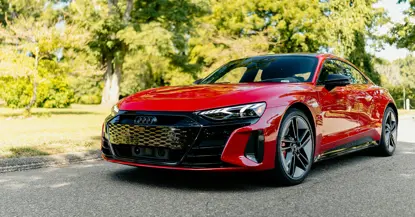
Impact of Salary Sacrifice on EV Adoption
Current Trends in EV Adoption
The automotive landscape is evolving, with electric vehicles (EVs) increasingly becoming the focus of both consumers and manufacturers. According to recent insights from Forbes "Electric Vehicles Are Going Mainstream, Whether You Like It or Not", EV adoption is accelerating at a pace never seen before. This shift is driven by advancements in technology, greater environmental awareness, and government initiatives aimed at reducing carbon footprints.
Case Studies and Real-World Examples
Real-world applications of salary sacrifice schemes highlight their potential in driving EV adoption. For example, XYZ Corporation pioneered an EV salary sacrifice scheme which resulted in a 20% uptake in EVs among employees within the first year. Similar success was seen at ABC Ltd, where employees reported significant savings on both taxes and running costs.
Employees like Jane Doe from XYZ Corporation shared positive feedback, noting, "The salary sacrifice scheme made owning an EV financially viable and aligns with my personal commitment to sustainability." Additionally, some organisations have partnered with leasing companies to offer a hassle-free EV acquisition process, further simplifying the transition for employees.
Challenges and Considerations
While the benefits are clear, implementing salary sacrifice schemes for EVs is not without challenges. One primary concern is the initial setup complexity—navigating tax implications, legal considerations, and administrative hassle can be daunting. Moreover, businesses must ensure they select appropriate vehicles that meet diverse employee needs regarding range, comfort, and charging infrastructure.
To mitigate these challenges, businesses can start small, piloting the scheme with a subset of employees. Engaging in partnerships with specialised consultants or leasing companies can also ease the administrative burden. Clear communication and education about the scheme's benefits and process are crucial to encourage employee participation and address any concerns proactively.
By understanding these dynamics and planning effectively, businesses can foster a smoother transition to electric vehicles via salary sacrifice, boosting both employee satisfaction and sustainability efforts.
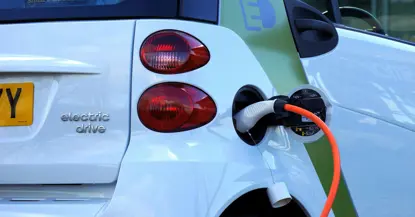
Practical Steps to Implement Salary Sacrifice for EVs
Setting Up the Scheme
The initial phase in setting up a salary sacrifice scheme for electric vehicles (EVs) involves a structured, yet straightforward approach. Begin by consulting with a specialist in salary sacrifice schemes to ensure your plan complies with UK tax regulations. You'll need to draft legal documentation encompassing the terms of the scheme, including specifics on the EVs offered, the period of the lease, and any early termination conditions.
Next, liaise with a trustful lease provider who offers a range of EVs. Negotiate terms that could offer added benefits such as maintenance or insurance packages, enhancing the scheme's appeal to employees. Develop a robust system to handle payroll adjustments, ensuring the sacrifice is efficiently deducted before tax and National Insurance, thus maximising savings.
Employee Engagement and Communication
Engaging employees and effectively communicating the benefits of the salary sacrifice scheme are vital for its success. Start by rolling out comprehensive communication materials, including email announcements, intranet articles, and informational webinars. Highlight not only the financial benefits but also the environmental impact and convenience of EVs.
Organise interactive sessions where employees can resolve their queries. This could include Q&A sessions with experts or test-drive events in partnership with your leasing company. Utilise testimonials from early adopters within the company to build trust and drive participation. Keeping the communication clear and consistent will ensure employees are well-informed and encouraged to partake in the scheme.
Selecting the Right Electric Vehicles
Choosing the right electric vehicles for your salary sacrifice scheme involves careful consideration of various factors. Opt for EVs that cater to a range of preferences, from compact city cars to premium models. Evaluate factors like range, battery life, charging times, and costs to ensure they meet the practical needs of your employees.
Consider the availability of charging infrastructure both at the workplace and for home use. Resources like the guide on electric car charging cables and plugs can be instrumental in helping employees understand their options. Encourage choices that align with sustainable goals while balancing practicality and budget.
Final Thought
Institute a feedback mechanism to continually assess and refine the scheme. Regular surveys and focus groups can provide insights into employee satisfaction and areas for improvement, ensuring the long-term success of your salary sacrifice programme for EVs. By thoroughly preparing and maintaining open channels of communication, you can foster a more engaged and eco-conscious workforce.
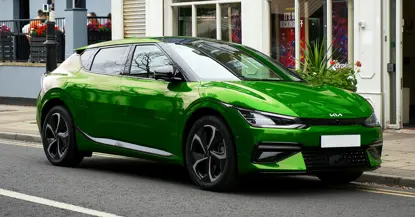
Conclusion
The integration of salary sacrifice schemes for electric vehicles (EVs) signals a meaningful advance in both employee benefits and corporate sustainability. These schemes, fundamentally designed to provide financial advantages to employees, also enable a significant shift towards greener transportation. Reduced tax and National Insurance contributions translate to manageable monthly payments, making EV ownership feasible, and attractive.
For employees, the benefits extend beyond financial gains. Embracing electric vehicles reduces their carbon footprint, fostering an eco-friendly mindset that aligns with broader environmental goals. Companies are not just bolstering their CSR profiles, but also securing tax incentives, and operational savings, and positioning themselves as forward-thinking employers. This forward momentum assists in both attracting high-calibre talent and retaining existing staff.
The uptake trends indicate a burgeoning popularity for electric vehicles, supported by companies effectively leveraging salary sacrifice schemes. Real-world examples underscore the positive impact and highlight potential challenges that can be navigated with well-planned strategies.
Implementing such schemes requires careful planning - from setting up the structure, dealing with legalities, and effectively communicating the benefits to employees. Choosing the right EVs also plays a crucial role, necessitating considerations around range, charging infrastructure, and associated costs.
In summary, salary sacrifice schemes present a compelling opportunity for businesses to enhance their benefits packages while contributing to environmental sustainability. They promise a dynamic convergence of financial, environmental, and operational benefits, paving the way for a sustainable, electric future. Encouraging businesses to adopt these schemes propels us towards a transformative shift in corporate responsibility and sustainable practices.
The future of electric vehicles is not just promising; it is inevitable, painting a hopeful picture of a world where businesses and employees unite to promote a cleaner, more sustainable planet.
If you want to learn more about the Stable Vehicle Contracts Salary Sacrifice Scheme and the employer and employee benefits available, please click the link here.
If you are a business owner or an employee who would like to know more about the benefits of salary sacrifice, you can book a demo with us. Please visit this link to book a demo.
Established in 2009, Stable Vehicle Contracts is a UK-based premium vehicle leasing company. We are part of a large, privately owned, Volkswagen and Audi dealership group with over 25 sites. Stable Vehicle Contracts has the ability to offer the very best car and commercial vehicle lease deals and thanks to our partners in the trade, we've become leaders in the supply of cars and commercial vehicles through leasing.
Give us a call today at 0151 728 4711 or visit our Special Offers page to see what deals we have on. Alternatively, signup for our leasing offers newsletter to get our latest deals delivered straight to your inbox.

